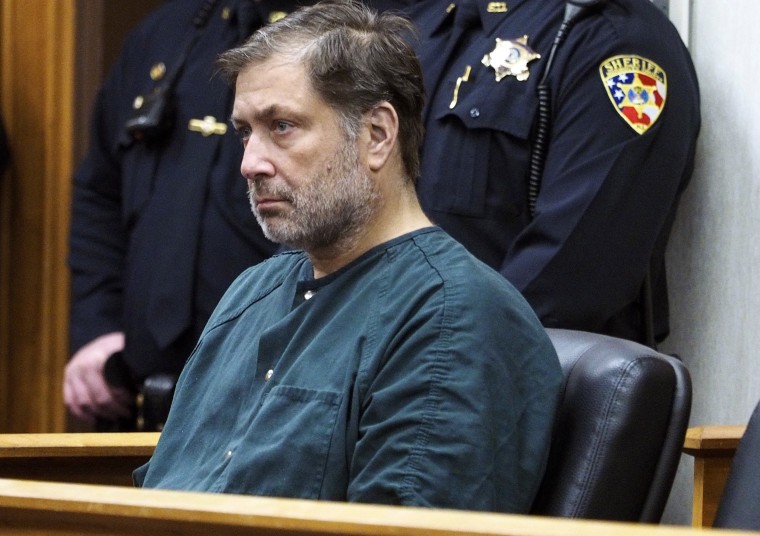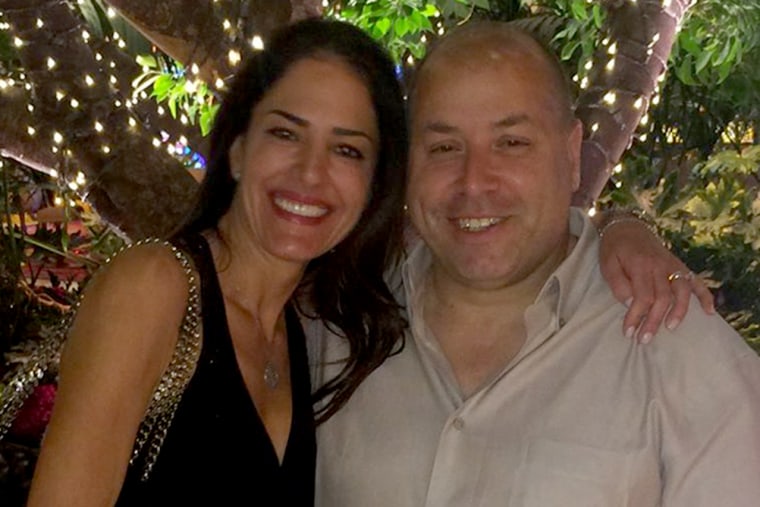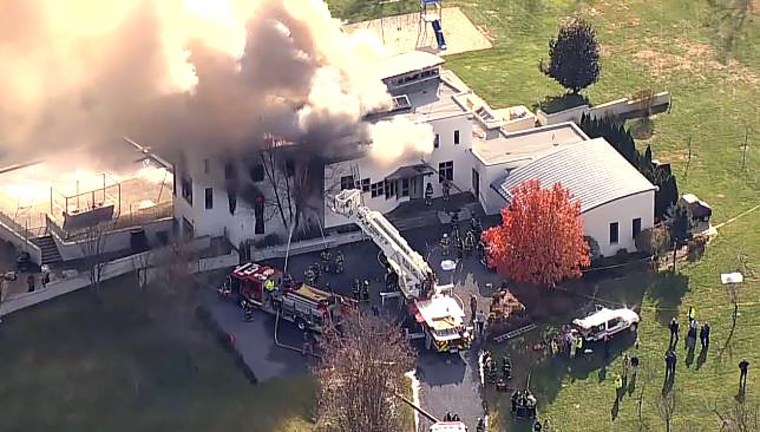A New Jersey man accused of killing his brother, sister-in-law, niece and nephew and setting their mansion ablaze was on the verge of losing his salary from a business he ran with his brother, investigators allege.
Paul Caneiro is charged with four counts of murder in the deaths of Keith Caneiro, 50, his wife, Jennifer Caneiro, 45, and their two children Jesse, 11, and Sophia, 8, who were found dead on Nov. 20, 2018, at their home in the wealthy community of Colts Neck, New Jersey.
He was indicted by a grand jury on 16 counts, including four counts of first-degree murder, felony murder, arson, weapons charges, theft, misapplication of entrusted property and hindering his own apprehension, the Monmouth County Prosecutor's office said Monday.
He has pleaded not guilty. Caneiro's attorneys said in a statement Monday that they were reviewing the indictment and plan go through the "evidence to identify any issues that may relate to the case."

The wife of a third brother told investigators that her husband received an email from Keith on Nov. 19 saying that money was missing from accounts for the two businesses he ran with Paul — a tech company called Square One and a pest control business, according to affidavits released by the Monmouth County Prosecutor's Office. The email said Keith was going to stop paying Paul.
The wife of the third brother, identified in the affidavit only as C.C., added that Keith had been frustrated with the amount of money Paul spent from the business accounts, and had wanted to sell one of the businesses, the affidavit said.
The brothers' office manager told investigators that she was instructed to stop sending money to Paul's wife, according to the affidavit. The wife had been receiving Paul's salary because Paul was technically on disability, the affidavit said.
Prosecutors have said that Paul shot Keith outside his home before stabbing Jesse and Sophia and shooting and stabbing Jennifer inside the home. He then set the house on fire before returning to his own home and starting a fire to "create the illusion that the overall Caneiro family was victimized or targeted," a prosecutor said last year.
No one was injured in the fire at Paul Caneiro's home.
When investigators searched Paul's car, they found a 9mm barrel of a Sig Sauer, accessories used to muzzle the sound of gunfire and a night-vision firearm fixture, the affidavit said.
Inside Paul's house, investigators also found a gun safe in the garage and a "vast amount of firearms and a variety of ammunition" in the basement, the affidavit said. Ammunition found in the basement — Fiocchi 9mm with the headstamp GFL 10 9X19 — matched shell casings found near Keith Caneiro's body, the affidavit said.
Also in the basement, police found a pair of jeans and a latex glove with Sophia's blood on them, the affidavit said. A knife with her DNA on it was also found at the crime scene.

Investigators have also found that a neighbor's surveillance camera captured someone leaving Paul Caneiro's home at about 2 a.m. on Nov. 20 and returning about two hours later, according to the affidavit. In that time, neighbors of Keith and Jennifer reported hearing gunshots.
Paul Caneiro had disconnected his own surveillance cameras at about 1:30 a.m. on Nov. 20, according to the affidavit. He told police that he may have disconnected the cameras because he thought they were causing the WiFi to run slowly, but investigators discovered that the cameras were hardwired, and did not run on WiFi.

